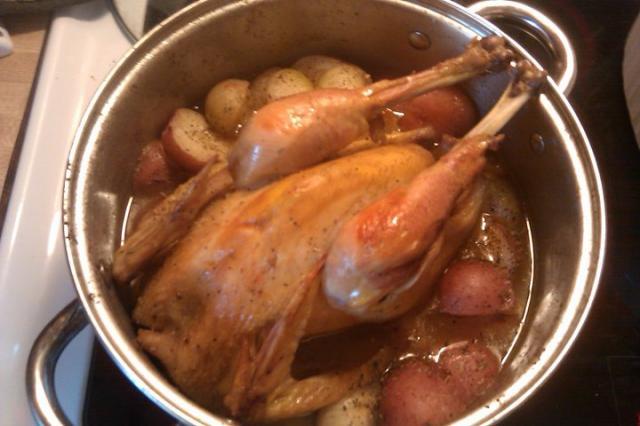I've eaten quite a few older roos - that age and well older. For him, I'd just bag him up and stick in the fridge for 3-4 days. Safety wise, you could easily keep him a week in there.
You'll not really want to roast him dry if you are used to "store" meat - it will be more dense and may dry out.
My favorite way to "roast" for adult birds is to season him up with some coarse pepper and maybe some garlic salt, plop him into a large dutch oven with some potatoes, onions, carrots, and maybe some broth (not much) cover. Bake him for 2 hours or so (longer if needed) at 300. Check the same way for doneness - meat thermometer in the thickest part of the thigh.
You'll end up with this:

(I think this one was about 17 weeks, so a little smaller).
It's very tasty - will have a bit more flavor than store, and the dark meat will have a LOT of flavor. Cooked right and rested well, you can still cut it with a fork, if it doesn't just fall into pieces. It's yummy

You'll not really want to roast him dry if you are used to "store" meat - it will be more dense and may dry out.
My favorite way to "roast" for adult birds is to season him up with some coarse pepper and maybe some garlic salt, plop him into a large dutch oven with some potatoes, onions, carrots, and maybe some broth (not much) cover. Bake him for 2 hours or so (longer if needed) at 300. Check the same way for doneness - meat thermometer in the thickest part of the thigh.
You'll end up with this:

(I think this one was about 17 weeks, so a little smaller).
It's very tasty - will have a bit more flavor than store, and the dark meat will have a LOT of flavor. Cooked right and rested well, you can still cut it with a fork, if it doesn't just fall into pieces. It's yummy



